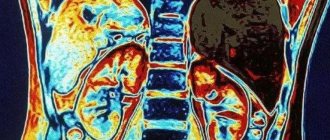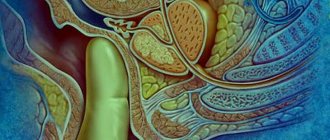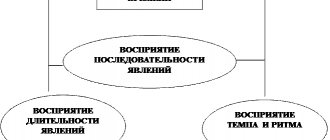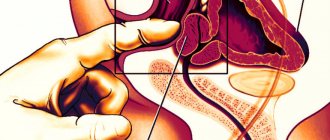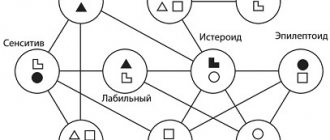How do researchers study the human mind and behavior? Although there are a number of different research methods, natural science experiments allow researchers to look at cause-and-effect relationships. They identify and define key variables, formulate a hypothesis, manipulate variables, and collect data on results. Extraneous variables are carefully controlled to minimize potential effects on results.
Types of experiments
There are several different types of experiments that researchers could use. Each of these may depend on a variety of factors, including the participants, the hypothesis, and the resources available to the researchers:
- Laboratory experiments are very common in psychology because they allow experimenters to have greater control over variables. These experiments may also be easier for other researchers to perform. The problem, of course, is that what happens in the laboratory is not always identical to what happens in the real world.
- A natural experiment is what is called a field experiment. Sometimes researchers may choose to conduct their research in a natural environment. For example, imagine that a social psychologist is interested in studying a certain type of social behavior. This type of experiment can be a great way to see behavior in action under realistic conditions. However, this makes it difficult for researchers to control for variables and may introduce confounding variables that may influence the results.
- Quasi-experiments. Although laboratory and natural experiments in psychology represent a group of the most popular methods, researchers may also use a third type known as a quasi-experiment. They are often referred to as natural experiments because the researchers have no true control over the independent variable. Instead, the level of goal achievement is determined by the natural conditions of the situation. This is a good choice in situations where scientists are studying phenomena in natural, real-world settings. It is also a good choice in situations where researchers cannot, for ethical reasons, manipulate the independent variable in question.
49. Natural experiment and laboratory experiment
A natural experiment is carried out only in natural, familiar working conditions for the subject, where his working day and work activities usually take place. This could be a desk in an office, a carriage compartment, a workshop, an institute auditorium, an office, a truck cabin, etc. When using this method, the research subject may not even know that some kind of research is currently underway. This is necessary for the purity of the experiment, because when a person does not know that he is being observed, he behaves naturally, relaxed and without embarrassment.
An example of a natural experiment is an artificially created fire situation in a hospital. So that, under real circumstances, all hospital staff know how to behave and are able to provide the necessary assistance. The advantage of this method is that all actions take place in a familiar working environment, but the results obtained can be used to solve practical problems. But this experimental method also has negative aspects: the presence of uncontrollable factors, the control of which is simply impossible, as well as the fact that it is necessary to obtain information as soon as possible, otherwise the production process will be disrupted.
Psychology bookap
The laboratory experiment takes place in an artificially created situation, as close as possible to the professional activity of the subject. This model allows you to establish control over the course of observation, regulate actions, create the necessary conditions, and allows you to repeatedly reproduce a particular experiment in the same place under the same conditions. A laboratory experiment is most often used to simulate a situation or one aspect of work activity, careful analysis and research.
In order to conduct a laboratory experiment in production, it is necessary for a psychologist to carefully study the subject’s work activity in real working conditions. The psychologist needs to highlight the key moments of the subject’s work activity, identify its features, etc. To conduct the experiment, it is necessary to have accurate information, study all possible errors, the reasons for the occurrence of these errors and solutions. Like a natural experiment, a laboratory experiment has its drawbacks. The difficulty lies in the fact that it is necessary to develop and artificially create a situation down to the smallest detail, but the subject himself is in a new environment, he gets lost, cannot concentrate, which significantly reduces the efficiency and rationality of the experiment.
Key terms
To understand how the natural experiment method works, there are a few key terms:
- The independent variable is the object manipulated by the experimenter. This variable is assumed to cause some effect on another variable. If a researcher is studying how sleep affects performance on a math test, the amount of sleep a person gets will be the independent variable.
- The dependent variable is the effect that the experimenter is measuring. In our previous example, test scores would be the dependent variable.
- Operational definitions are necessary to conduct an experiment. When we say that something is an independent or dependent variable, we need to have a very clear and specific definition of its meaning and scope.
- A hypothesis is a tentative statement or guess about a possible relationship between two or more variables. In our previous example, a researcher might hypothesize that people who get more sleep will do better on a math test the next day. The purpose of the experiment is to support or not support this hypothesis.
Experimental process
Psychologists, like other scientists, use the scientific method when conducting experiments. The scientific method is a set of procedures and principles that guide how scientists develop research questions, collect data, and draw conclusions. There are four main stages of the process:
- Formation of a hypothesis.
- Research design and data collection.
- Analyzing data and drawing conclusions.
- Sharing results.
What is a natural experiment?
A natural experiment is an empirical study in which individuals (or clusters of individuals) are exposed to experimental and control conditions beyond the control of the researchers, but the process itself appears natural. These are some kind of observational studies. A natural experiment is the most useful method when there is a clear exposure with a well-defined subpopulation (and lack of exposure) so that changes in results can plausibly be attributed to the exposure. In this sense, the difference between a natural experiment and a non-experimental observational study is that the former involves comparisons of conditions that pave the way to a causal inference, but the latter does not.
Natural experiments are research projects where controlled experiments are extremely difficult to implement or unethical, such as in several areas of research covered by epidemiology (for example, assessing the health effects of varying degrees of exposure to ionizing radiation in people living near Hiroshima at the time of the atomic explosion) , economics (e.g., estimating the economic returns to adult education in the United States), political science, psychology, and social sciences.
World of Psychology
NATURAL EXPERIMENT
A natural experiment
is a special type of psychological experiment developed by the famous Russian scientist. psychologist A.F. Lazursky (1874-1917). Lazursky first reported on E. e. at the 1st Congress on Experimental Pedagogy (1910), and in 1918. The book “Natural Experiment and Its School Application” was published - the result of 6 years of work of the circle organized by Lazursky from among the employees of the psychological laboratory of the Psychoneurological Institute. Significant contribution to the development of E. e. psychologists M.Ya. also contributed. Basov and V.A. Artemov (“Natural experiment.” - M., 1927).
A natural experiment combines the positive features of the method of objective observation (naturalness) and the method of laboratory experiment (targeted influence on the subject). It is carried out under conditions similar to the normal activities of the subject, who does not know that he is the object of the study. This allows you to avoid denial. the influence of emotional stress and intentionality of response. Bringing experimental research closer to life, the Natural Experiment makes it possible to study mental processes and personality traits in natural conditions of work, study or play. It is accessible and easy to carry out. Observation is often supplemented by a conversation with the subject.
The disadvantage of the Natural Experiment method is the difficulty of isolating for observation individual elements in the holistic activity of the subject, as well as difficulties in using quantitative analysis techniques. Results E. e. processed through qualitative analysis of the data obtained.
One of the variants of a natural experiment is a psychological and pedagogical experiment (experimental learning), in which a student is studied directly in the process of his education and upbringing, with the goal of actively developing mental characteristics to be studied (see Educational experiment ). See also Types of surveillance .
Psychological Dictionary. A.V. Petrovsky M.G. Yaroshevsky
no meaning or interpretation of the word
Dictionary of psychiatric terms. V.M. Bleikher, I.V. Crook
Natural experiment [Lazursky A.F., 1918] is a method of psychological research that occupies an intermediate position between objective observation and laboratory experiment. It is characterized by the naturalness of the observation conditions with the accuracy and scientific nature of the experiment. Author according to the method of E.e. conducted a pedagogical analysis of a student’s activities in psychological criteria and terms; from the standpoint of a psychological experiment, all types of activities were studied: games, gymnastic exercises, etc.
Neurology. Complete explanatory dictionary. Nikiforov A.S.
no meaning or interpretation of the word
Oxford Dictionary of Psychology
A natural experiment is a naturally occurring situation that contains many of the characteristics of a formal, laboratory experiment and in which factors can be identified that function as independent variables although they are not controlled in the usual sense. For example, you can study the role of learning in a child's vocabulary development by comparing the number of new words learned during the summer with the number of words learned in the months before and after.
subject area of the term
back to section
:
dictionary of terms
/
glossary / table
Natural experiment conditions
Key conditions and features of experimental research include manipulation and control. Manipulation in this context means that the experimenter can control the subjects of the study and how they experience the effects. At least one variable may be manipulated. Controlled trials can only answer certain types of epidemiological questions, and they are not useful when investigating questions for which randomization is either not feasible or unethical.
As an example, suppose an investigator is interested in the health effects of poor housing. Because it is not practical or ethical to randomly assign people to variable housing conditions, the subject is difficult to study using an experimental approach. However, if there was a housing policy change, such as a lottery for subsidized mortgages, that would allow some people to move into more desirable housing while leaving other similar people in their previous substandard housing, it might be possible to use this policy change to study the impact of changing housing health conditions.
In another example, the well-known natural experiment in Helena (Montana, USA), in which smoking was banned in all public places for a six-month period. The researchers subsequently reported a 60 percent drop in heart attacks in the study area during the ban's duration.
Scientific method of research
Experiment is the main research method in science. The key functions are control over variables, careful measurement and establishment of cause-and-effect relationships. This is a study in which a hypothesis is tested scientifically. In an experiment, the independent variable (cause) is manipulated and the dependent variable (effect) is measured, and any extraneous variables are controlled. The advantage is that experiments tend to be objective. The views and opinions of the researcher should not influence the results of the study. This is good because it makes the data more reliable and less biased.
Natural and laboratory experiments in psychology
⇐ PreviousPage 3 of 17Next ⇒
An experiment (from the Latin experimentum - test, experience) is the active intervention of a researcher in the life activity of a subject in order to create conditions under which any psychological pattern is discovered. In psychology, there are two main types of experiments:
· the laboratory experiment is carried out in specially equipped rooms, which ensures particularly strict control of independent and dependent variables;
· natural experiment - in this case, the subject does not know, has no idea that he is participating in the study (the subject performs his usual activity, and the experimenter is a familiar person to him).
For both types, there are some general rules: the experimenter systematically manipulates one or more independent variables (this is the cause) and records the accompanying changes in the behavior of the object being studied, i.e. monitors changes in dependent variables (this is a consequence).
Laboratory experiment. The main advantage of the method is the active position of the researcher, which gives such an experiment the following positive features: - efficiency ( the researcher does not wait for the necessary facts to appear, but creates the situation himself, the conditions that cause the mental process being studied), repeatability ( high accuracy due to the use of modern measuring equipment), uniformity of data and, as a result, simpler analysis);
The data obtained as a result of a laboratory experiment must be verified under natural conditions of human activity.
Natural experiment. In order to eliminate the main drawback of laboratory experiments - the unnaturalness of mental processes - a natural experiment was developed. According to the principle of organization, it is similar to observation, but differs from it in the active position of the researcher. The researcher, unnoticed by the subjects, organizes their activities in such a way that the necessary psychological characteristics and qualities appear. A type of natural experiment is a psychological and pedagogical experiment, when teaching or educational problems are solved during the experiment.
Organization of an experiment requires compliance with a number of conditions:
1. An experiment, like all research methods, requires preliminary setting of a goal and selection of an object.
2. It is necessary to carefully develop a methodology for conducting an experiment and prepare material for research. The material must be manufactured in strict accordance with the recommendations of the methodology.
3. The conditions in which the research will be conducted should be prepared in advance.
4. It is necessary to compile and memorize the instructions and description of the experiment procedure in advance. Moreover, it must be remembered that the instructions must be understandable to the subjects.
5. Before conducting an experiment, it is necessary to select a subject and establish friendly, trusting relationships with him. The researcher must win over the subject, which is accompanied by a relaxed, calm conversation, a smile, and approving gestures. You cannot emphasize the unusualness or exclusivity of the situation or take the position of an inspector. It is advisable to give the experimental procedure the character of ordinary friendly communication. Method materials cannot be used to establish contact.
6. It is necessary to react with restraint and evenness to the successes and failures of the subject during the experiment, unless otherwise provided by the research methodology.
7. The pace of the study must correspond to the individual psychological characteristics of the subject.
8. An experiment conducted with a child should not be very long. As a rule, it is limited to 15 - 20 minutes, unless another time is provided for by the research methodology. Moreover, the younger the child, the shorter the study should be.
9. An experiment always involves a standard procedure, so you cannot make any changes to it, for example, changing the instructions. It is necessary to ensure that the subject understands and accepts the instructions. It can be repeated 2-3 times without changes, but it cannot be explained if this is not provided for by the research methodology. All subjects must be presented with tasks in a strictly uniform manner, with the same intonation and voice strength, without emphasizing any words, except in specially specified cases.
10. The experiment is usually carried out by an experimenter and a protocolist. It is important that the latter is out of the field of view of the subject, but can see and hear him well. In the protocol, he records the behavior, speech and emotional reactions of the subject in accordance with the criteria provided for by the research methodology. We especially emphasize that children’s speech is recorded preserving all its features, without correcting grammatical and other errors. The functions of the protocolist, therefore, are to accurately record psychological facts, the functions of the experimenter are to conduct research.
The experiment has a number of advantages:
· active position of the researcher (he does not wait for the subject to experience the mental phenomenon that he is studying. He himself causes it by creating appropriate conditions);
· the experiment can be repeated, i.e. once again evoke the mental phenomenon being studied, which means checking and clarifying the initially obtained data;
· the experiment allows you to quickly collect a large amount of factual material;
· experiment is a more objective method than observation, since its methodology contains clear criteria for recording and processing data;
· the method of recording data has been significantly simplified, since the phenomenon being studied is separated from a number of life circumstances;
· analysis of the experimental protocol is constructed in accordance with the given sequence of methods. The analysis of the obtained facts can be expressed in numerical terms and subjected to quantitative processing.
The disadvantages of the experiment include the following:
· the experiment requires long and careful preparation. The reliability of the data obtained depends on the experimenter’s ability to set a goal, select material, accurately use instructions, monitor the time and sequence of task completion, the peculiarities of the subject’s reaction, as well as the ability to get into contact with him, and knowledge of methods for statistical processing of the obtained facts;
· the researcher is involved in communication with the subject and can unwittingly influence his behavior. The mental model can influence the facts obtained;
· a holistic picture of the subject’s psyche is not created;
· when conducting a laboratory experiment, the naturalness in the mental manifestations of the subject may disappear.
⇐ Previous3Next ⇒
Recommended pages:
